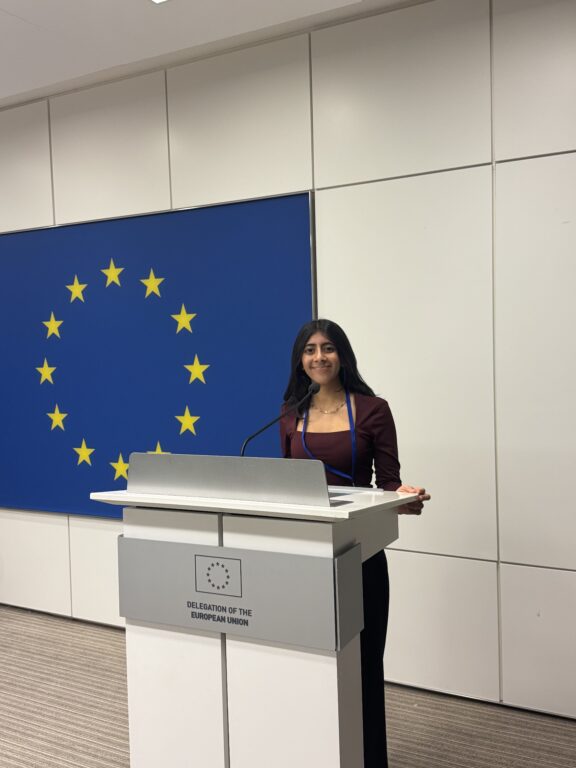By: Pari Patel – 2022 Summer Intern
My family immigrated to this country for a better life for themselves and for their children. Like many immigrant families, they also must support family members back home. Taking care of relatives here and in the native countries can present serious challenges for both immigrants and their children.
Being a first-generation American and a child of new immigrants can mean having to meet high expectations of parents who want you to succeed. And first-generation kids often find themselves caught between wanting to fit into American society and wanting to please their parents, who have different values. This can bring cultural differences that cause tensions between kids who grow up in America and their parents who are still connected to their native lands.
Studies show first-generation children can face bullying and discrimination in this country because of their different look, language and culture. And that can lead to depression.
An article in the Journal of Immigrant and Minority Health noted, “First generation immigrant adolescents experience higher rates of bullying and peer aggression compared to third generation and native counterparts.
It also noted, “Refugee status and advanced parental age were associated with increased parent to child aggression among South East Asians.”
Many factors can contribute to whether first-generation Americans are accepted or face discrimination. But pressure. can also come from inside the home as well as from the outside. Many children of new immigrants also have to live up to their parents’ expectations. They feel the pressure of parents wanting to live out their dreams in their children, often pushing them to be overachievers.
Officials in schools should be aware of the extra burdens children of immigrants face and ensure their mental and emotional health needs are being addressed. This is especially true now when so many factors from COVID-19 to gun violence are affecting all youth.
Despite the significant challenges for first-generation children, there also are benefits. First-generation children have to speak English as well as their parents’ native tongue to be able to communicate at home and at school. This means first generation children have a foot in two worlds and identify with the cultures of at least two countries. They are better able to appreciate the diversity of American society.
Most of all, many children of new immigrants realize their parents have made incredible sacrifices, often working long hours and very hard jobs in this country to give them a better future. Hard-working immigrant parents deserve admiration and respect, and so do their children, who watch them struggle, overcome obstacles and succeed. They truly represent the best of the American story.
Pari Patel wrote this opinion piece while interning for the World Affairs Council of Harrisburg and PA Media Group. It was published here.




